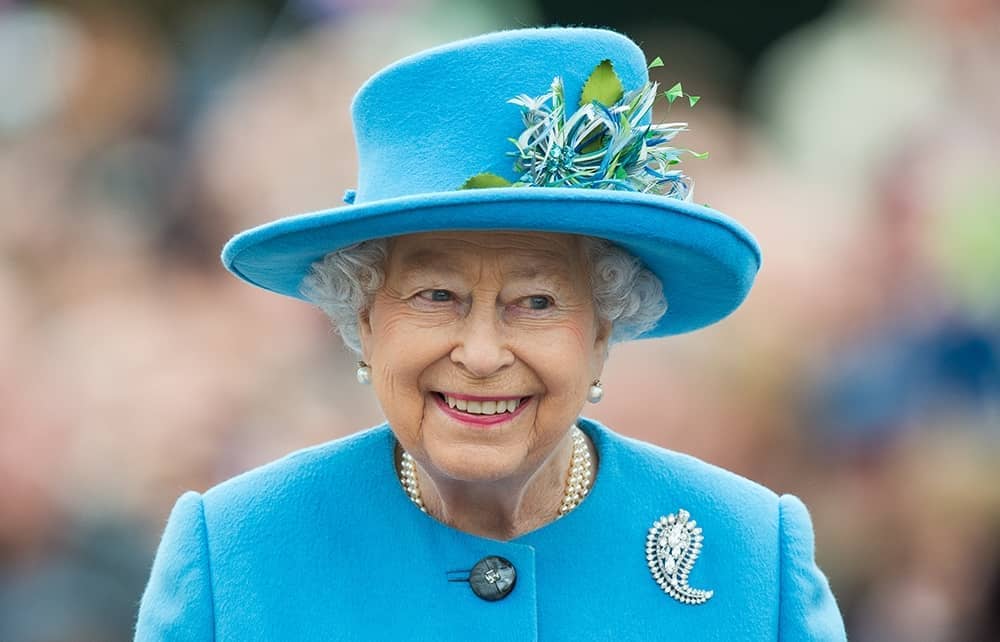Rarely has a public figure taken a promise so seriously as the vow that Her Majesty the Queen made on her 21st birthday in 1947: ‘I declare before you all that my whole life – whether it be long or short – shall be devoted to your service.’ Predictions that she would take the occasion of her 60th, 70th, 80th or 90th birthdays to retire and enjoy an easier life have proved laughably wide of the mark. The celebrations this weekend are a reminder that the Queen has, as she pledged, given her life to her country.
There would be no disgrace if the Queen did retire in the manner of the much younger Queen Beatrix of the Netherlands, who abdicated in favour of her son nine years ago. Yet she has continued to serve, while adjusting her schedule to account for her 96 years. She remains not just a unifying force, but perhaps the most potent such force in public life. This is due not to her position alone but to her personal record, her character and service.
Britain in recent decades has often seemed a fractious place, but the constitutional under-pinnings of the country, as personified by Elizabeth II, have remained intact. Only a small proportion remember life in Britain before she was at the helm. It is not that the Queen is a great orator who has popped up on every occasion to motivate us. So often her power has resided in her restraint: it is the things she hasn’t said, the interventions she hasn’t made, which have proved so influential. She has understood that as monarch she does not need to join arguments.
The Jubilee celebrations are a reminder that the Queen has, as she pledged, given her life to her country
There can be no better demonstration of the power of reticence than the Queen’s words in response to last year’s TV interview given by Harry and Meghan. ‘Recollections may vary’ must be among the three most poignant words uttered by any leader in recent years. Her work ethic speaks silently and instructively to others who have sought to use their position as a device for publicity and a segue into showbusiness or commentary.
Yet for all the Queen’s determination to continue with her life’s work, we must accept that we are going to see less of her in future. The daily round of engagements which has formed the backbone of her life for so many years has necessarily been pared down in recent months. Occasions such as the State Opening of Parliament have had to take place without her. Princes Charles and William are increasingly sharing her workload. We will have to accept, too, that public walkabouts are steadily being replaced with processions by buggy.
That, perhaps, is why the Platinum Jubilee is being observed with such anticipation: those celebrating are mindful that such occasions are very rare. Seldom does a monarch celebrate a 75th or 80th anniversary: there is no obvious name for these occasions. After Silver, Gold, Diamond and the lower–key Sapphire Jubilee of five years ago, we are running out of precious metals and stones.
Nevertheless, we are not entering a period of regency. The Queen remains very much an active participant in her own reign: the authority of Buckingham Palace has not been eroded by the strengthening of Clarence House, or by the drama between the houses of Sussex and Cambridge. Prince Charles, the holder of the longest apprenticeship in history, remains just that: a servant who is still learning from the boss.
This is not a week for looking too much to the future; rather it is for celebrating the treasures of recent decades and marking the here and now. It is a week which has confounded the predictions of republicans, who were quite sure that public regard for the monarchy would have long since faded by now. A conference of global republicans being held this weekend has struggled to capture much public support in Britain, or in any of the 54 Commonwealth countries where her Jubilee is being celebrated.
Rather than losing its relevance, the monarchy has become more useful than ever in the age of globalisation and mass migration. Newcomers to Canada, for example, are told that the oath of allegiance is about the present-day, not about nostalgia. ‘We profess our loyalty to a person who represents all Canadians – and not to a document such as a constitution, a banner such as a flag or a geopolitical entity such as a country,’ says the welcome pack for new citizens. ‘It is a remarkably simple yet powerful principle: Canada is personified by the Sovereign just as the Sovereign is personified by Canada.’
The same is true for Britain – and this weekend is an opportunity to reflect not just on Elizabeth II’s service but on all that she continues to bestow. Almost a century after her birth and after 70 years of her reign, we have more occasion than ever to say the anthem and the prayer: God Save the Queen.






Comments